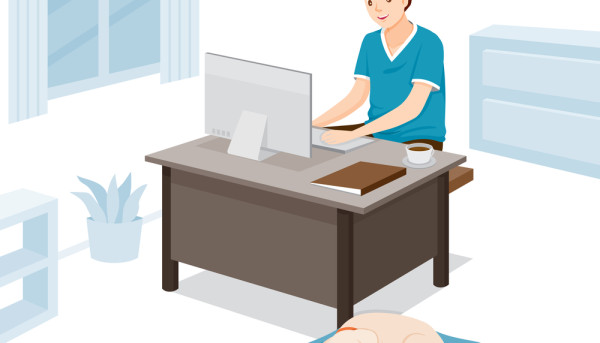Starting a Business 101 - The Challenges of Being Self-Employed

Whether you're thinking about starting a business or you're currently operating one, there are several challenges to being self-employed. This article will discuss some of these challenges and give you some ideas to help you overcome them.
Pre-launch marketing to first sale
Getting your product off the ground can be a tough sell, but pre-launch marketing can make it easier. It helps you test your marketing channels, gather feedback, and get the word out about your product before your official launch. Pre-launch marketing will also help you create a buzz and build a loyal community waiting to buy your product.
Before you jump into the pre-launch marketing game, you should create a checklist for your campaign. Make sure you have your product, unique selling proposition, market demand, and monetization model all in order. You don't want to waste time with something that doesn't work.
You'll also want to include a landing page. This page will be your first touchpoint with potential customers. The page should be optimized for conversions, speak to your ideal customer, and use language your audience will understand. You can use videos, countdowns, and other fun features to increase the effectiveness of your page.
Another pre-launch marketing strategy to consider is to set up an employee spotlight. This will help you tell stories, build a personal connection with your audience, and improve your brand reputation. Adding a spotlight to your website or social media account can also help you generate buzz and gather leads.
The pre-launch marketing strategy is also a good time to try out content marketing. You can write your own articles or use other re-usable content to build your audience's knowledge base. You can also share these articles on forums related to your product.
Getting your licenses and permits
Getting your licenses and permits when starting a business is essential to ensuring that you operate your business in a safe and legal manner. Failure to do so can cost you time and money later on.
Depending on the type of business you are operating, you may need a number of different permits. For example, if you run a restaurant with an outdoor patio, you may need multiple licenses. You may also need a building permit if you are planning to make structural changes to the location of your business. You also need a sales tax license if you are selling products.
Getting your licenses and permits when starting a business can be a time-consuming process. It can take a few days to several weeks to get approved. It is important that you complete the application thoroughly and submit all necessary paperwork. Also, you should make sure you are aware of when your licenses and permits expire. If you do not renew your licenses and permits, you may be in violation of the law.
The United States Small Business Administration (SBA) provides information about how to get a business license. They also offer a license lookup tool that can help you identify the licensing agencies in your state.
You can also contact your local city hall or the local Chamber of Commerce. They are a good source of information. They can tell you which permits you will need and provide you with a list of the required documents.
Finding a location
Choosing the location of your business is a crucial step for many entrepreneurs. This is especially true for retail and restaurant businesses. The location of your business can affect the atmosphere of your business and its image. It is important to consider a variety of factors before making this important decision.
You will want to consider the location's demographics and foot traffic. This will help you determine whether or not you will be able to attract customers. You also need to consider whether the location is affordable. Real estate costs can vary widely from city to city. You should also consider the local zoning laws.
It is also important to consider how your business will fit into the neighborhood. The location of your business may also affect your operating expenses. You should also take into account how it will affect your revenue. If your business is a bricks-and-mortar store, you may have to deal with parking, public transportation, and other issues.
If you are planning to rent, you may need to make sure you can fit your business into the building. There are also amenities to consider. This can take a lot of time.
It is also important to consider the competition in your area. If you are going to start a retail business, it is important to think about the demographics of your target customers. You want to find a location that is in close proximity to customers.
Employees
Taking the leap to become self employed can be a daunting task for some. Before you take the plunge, you'll want to weigh the benefits and drawbacks of being self employed and decide for yourself if it is right for you. There are a few things you can do to increase your chances of success, including networking, researching your niche and establishing a business plan.
For instance, how much do you know about what constitutes a good business plan? A good business plan will include a marketing plan, financial considerations and growth forecasting. Creating a business plan is a good idea for any business owner, but if you are looking to go the self-employed route, you'll have to do your homework. A good business plan will allow you to grow and become successful.
Despite the plethora of resources available, choosing a business plan is not as easy as it sounds. A good business plan should be tailored to your specific needs. For example, if you are trying to start a graphic design company, you'll need to consider technical skills such as color theory and design software. You'll also want to consider if you want to hire a full-time employee or outsource administrative tasks. You may also want to decide on the type of business you want to establish. Depending on what you decide, there are a variety of business structures available, including sole proprietorships, partnerships, limited liability corporations and S corporations.
Taxes
Whether you are starting a new business or want to expand an existing business, there are several tax aspects you should know. This includes estimating your taxes and getting ready to file your taxes with the IRS. You should also understand your business' tax obligations and how to minimize them.
There are several types of entity structures to choose from, including sole proprietorship, limited partnership, limited liability company and corporation. Each has advantages and disadvantages. If you choose the right entity structure for your business, you will have an easier time managing your accounting.
In addition to choosing a business structure, you will also need to choose a trade name, secure commercial contracts and identify your shareholders and directors. You will also need to establish a bank account for your business. Typically, you will be required to have an employer identification number (EIN), a unique nine-digit number for your business. You may also need to register with the IRS and apply for a business license.
Using a bookkeeping software is a great way to keep track of your business' expenses and accounts payable and receivable. You can also use your EIN to file your taxes with the IRS.
Choosing the right structure for your business will help you maximize income splitting and minimize tax liabilities. If you are starting a new business, you can use a tax planning service to help you understand your legal obligations and make the best possible business decisions.











